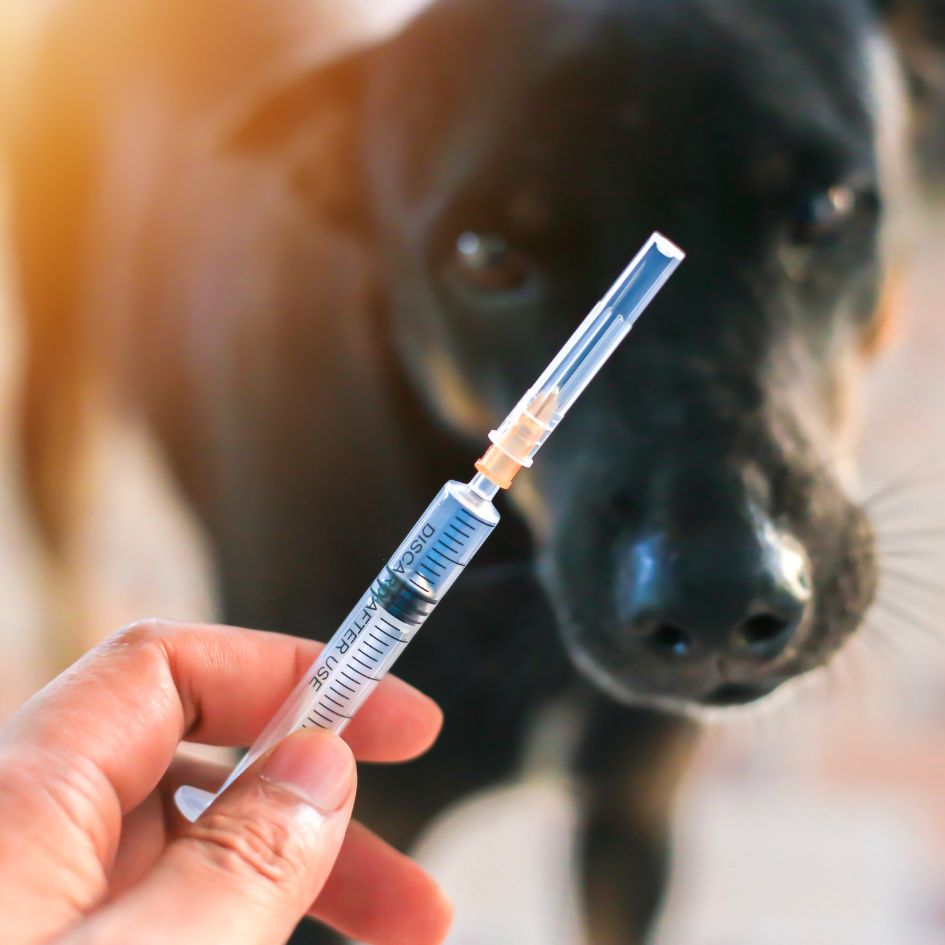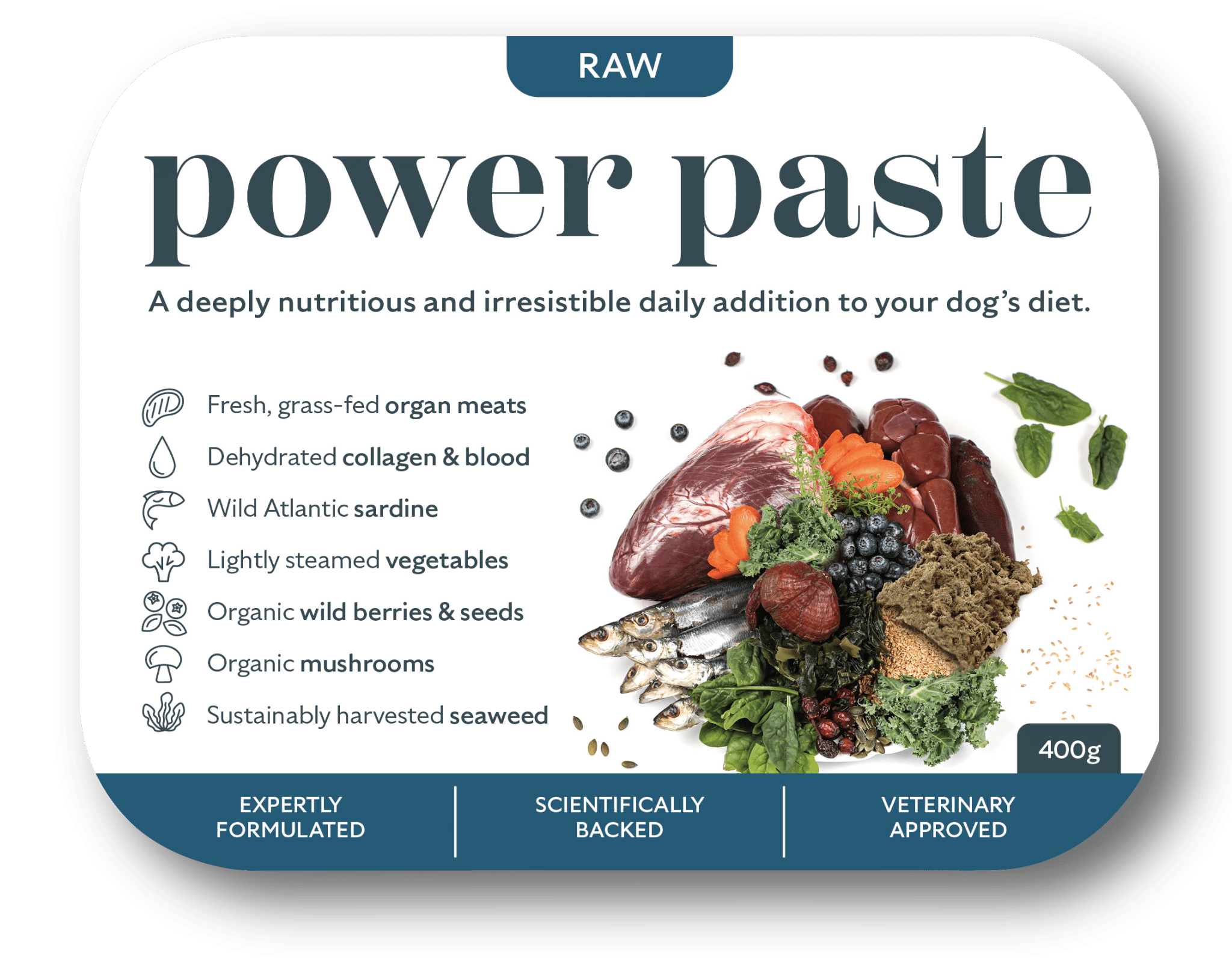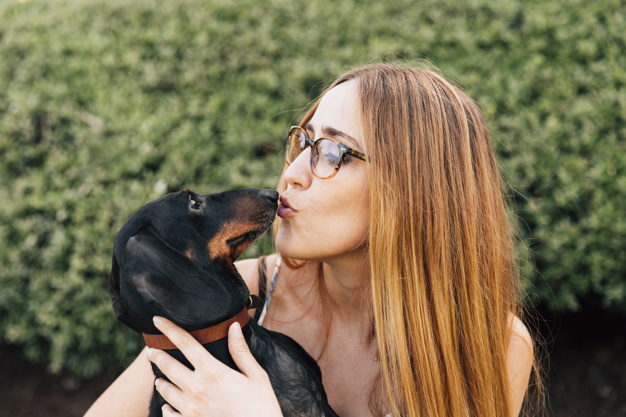We can all think back to the dead arm in school after receiving a vaccination, and for many of us, that’s where our vaccine schedule ended. As adults, we don’t seem to receive regular “booster” vaccinations until the heavily debated flu jab and now the C word one. Dogs, on the other hand, are “boosted” yearly for a range of viruses. For those interested in immunology, even the term “boosted” raises an eyebrow – surely you have either developed an immune response or not. Like a booster seat makes you appear taller, the booster vaccine implies a greater response to a virus, but that’s not what we want; we want the right response at the right time.
Thankfully, those who know a lot more about immunology than us started to wonder about pet vaccination schedules, boosters, and whether we are over-vaccinating our pets, and heads started to roll. Well, they didn’t, but they should have and if you want to know why they should have, read on…
Why do dog vaccines only last a year?
A vaccination contains a small, modified dose of an infectious disease. It is administered to the body to elicit a mild immune response. The disease is then imprinted on “memory” cells, and the immune system is now “primed” or “immunised” for further encounters. It can now remember the virus, so should it encounter it again it will be immediately ready.
When you look at how a vaccination works, but then that dogs are “boosted” every year, it implies that their immune system only has a memory for around the 1-year mark. For something that has evolved over tens of thousands of years, that’s a pretty rubbish system.
Well, even manufacturers give a dog’s immune system more credit than that.
In the clinical particulars for one of the DHP vaccines, the manufacturers state the following:
“For the active immunisation of dogs to reduce clinical signs of disease caused by canine distemper virus infection; to prevent clinical signs and viral excretion caused by canine parvovirus infection; to reduce clinical signs of canine contagious hepatitis and viral excretion due to canine adenovirus 1 infection and to reduce clinical signs of respiratory infection and viral excretion caused by adenovirus type 2 infection.
Onset of immunity: one week
Duration of immunity: three years.”
Yes, even the manufacturers give a duration of immunity of three years.
Here, it’s pertinent to mention a note made on the WSAVA guidelines:
“A datasheet will give details of the quality, safety and efficacy of a product and in the case of vaccines, will describe the minimum duration of immunity (DOI) of the product. The DOI is based on experimental evidence (i.e. how long after vaccination is an animal protected from infection or disease as determined by challenge with a virulent infectious agent), represents a minimum value and need not reflect the true DOI of a vaccine. Most companion animal core vaccines, until relatively recently, had a 1-year minimum DOI and carried a recommendation for annual revaccination. In more recent years, many of the same products have been licensed with a minimum DOI of 3 (or sometimes 4) years. In fact, in many countries, the majority of core vaccines are now licensed for triennial revaccination of adult animals. However, there are many other countries in which the identical products still carry a 1-year minimum DOI; simply because the manufacturer has not applied for a change in its product label recommendations or because the national licensing authority has not permitted the change to be made. This unfortunate situation does lead to confusion amongst practitioners in those countries. Above all, it must be remembered that even a 3-year licence is a minimum DOI for core vaccines and for most core vaccines the true DOI is likely to be considerably longer, if not lifelong, for the majority of vaccine recipients.”
In addition, challenge studies have demonstrated duration of immunity anywhere between 5-9 years on average (some even 15 years), depending on the vaccine.
It’s also unlikely that a core vaccine “only lasts a year” anyway – it would be more likely that the vaccine was ineffective (due to maternal antibody interference or the poor immunogenicity of the vaccine) and that your dog never in fact mounted an appropriate response after the vaccine in the first place.
Non-core vaccines are slightly different, however. Non-core vaccines often include those containing bacterial antigens, and this is the stance on those:
Almost without exception, there is no immunologic requirement for annual revaccination. Immunity to viruses persists for years or for the life of the animal. Only the immune response to bacteria requires boosters (e.g. Leptospirosis in dogs)“.
Dr. Schultz, Veterinary Immunologist and Chairman of the Dept. of Patho-Biological Sciences, University of Wisconsin.
But those vaccines are a separate issue altogether. To learn more about the Leptospirosis vaccine, check out our article here.
Does your dog have anal gland issues? Stoolrite can help!
There is a risk with anything you administer to your and your dog’s body. That’s not to be dramatic; it’s just a fact.
There is no doubt that vaccination has been progressive in public health concerns for both humans and dogs, but they were never meant to make the host sick. The numbers indicate that our dogs do suffer side effects from vaccines, and we must wonder whether it is the schedule we have put them on and whether we are, in fact, over-vaccinating them.
There is increasing evidence that over-vaccination is associated with the development or aggravation of immune-mediated disorders and chronic diseases in individual dogs that are genetically predisposed. This raises a particularly interesting element that has perhaps been missed when developing blanket vaccination schedules for our dogs.
Twin studies in humans have demonstrated there is a clear genetic role in vaccine response. A growing list of genes have been associated with immune-related functions critical to immunological response, and much data is concluding it is the status of these genes that is key to immune response.
Human data highlights that gene status is one of the reasons vaccines can either elicit partial, complete or failure to protect individuals treated under the same conditions. This suggests that the opposite is true; gene status could elicit a partial or complete adverse reaction or, hopefully, the failure to demonstrate an adverse reaction.
Genes are a set of instructions for how the body works and responds, and there are a number of factors that can affect how they are expressed. This is likely understood in the canine world to some extent because most vaccines are marketed as “safe for healthy dogs.” Yet many cases exist where not entirely healthy dogs are still given yearly vaccinations.

Tailoring Vaccinations to Individual Dogs
Sticking with the WSAVA, they state the following:
“A veterinary surgeon is empowered to make a clinical benefit/risk judgement based on the local reports of infection and taking account of the age, health, home environment, travel plans and lifestyle for each individual animal presented for vaccination and discuss recommended vaccine schedules with the owner. Thus the decision to vaccinate the individual patient and the frequency thereof is a matter for the veterinary surgeon and his client to discuss.”
So be bold and talk to your vet about your dog’s health – do they have any underlying health concerns that could affect their response to a vaccine?
We can also do our best to support their health in anticipation of a healthy response to a vaccine. For more information on the potential side effects of vaccination, you can read our article here.
Alternatives to Yearly Vaccinations
Not only are yearly vaccinations not promoted by all the great minds in the biz, but there is even a completely safe alternative for core vaccines: a titer test.
A titer test is a simple blood test which establishes the levels of existing antibodies in the blood. Antibodies are produced when an antigen provokes a response from the immune system. This response can be from natural exposure or a previous vaccination.
Why is this better than over-vaccination?
Human studies have established variability in vaccination response. There may be partial, complete or failure to protect when individuals are vaccinated under the same conditions. The titer test can take some of the guesswork out of it.
A positive test indicates that an individual does have protective levels of antibodies.
A negative test indicates that an individual does not have protective levels of circulating antibodies. However, it is worth noting that a negative test result does not indicate susceptibility.
On the whole, test correlation with protection is fair to good.
Canine adenovirus, distemper virus and parvovirus all correlate well (in that a titer response correlates with the immune system mounting a response).
Titre testing is like checking your fuel gauge before you head out on that long trip – you check to see if you’ll have enough fuel to get there. You check your dog’s titre before deciding he needs another vaccine.

Conclusion
No matter where you look, there is a consensus that the idea of yearly core vaccinations is outdated. Manufacturers claim the duration of immunity of multiple vaccines is longer than a year, and WSAVA states it is not possible to induce “better” immunity by giving repeated vaccinations.
All vaccination schedules should be planned on a case-by-case basis; considering the dog’s health. Furthermore, past puppy vaccinations, why not check with a titer test first?
We can also support our dog’s health around vaccinations, so if you would like to learn more about this, have a consultation with Dr Conor.
Canident – tartar remover for dogs
FAQ
What Happens if Your Dog is Not Vaccinated?
There are many caveats to this question. If you never vaccinate your dog, you do run the risk that he may not be protected against some pretty nasty diseases. But there is a difference between being vaccinated and being “up to date.” You may vaccinate your puppy, and he will hopefully mount an effective response, testing positive on subsequent titre tests. But he may not be “up to date” in the eyes of your vet, local daycare settings, kennels and alike. Being up to date usually means he has had all the required “boosters.” This may limit your access to certain dog services, but ask if they would accept proof of a titre test instead.
At What Age Do You Stop Vaccinating Your Dog?
WSAVA guidelines suggest that core vaccines can be administered at 6-8 weeks and every 2-4 weeks until 16 weeks or older. Revaccination can occur at six months or one year of age and no more often than every three years.
You may decide to titer test after one year or wait for the three years post one year re-vaccination. If your dog demonstrates a positive titer test and continues to have a positive titer test, you may never vaccinate your dog again.
As your dog gets older, you may also consider how their health changes and whether they are healthy enough to receive a vaccination – this is a discussion to have with your holistic vet.
One FAQ found in the WSAVA guidelines is pertinent here:
- Should one vaccinate an animal which is diseased, hyperthermic or stressed? No. This is contrary to good practice and the advice on most vaccine datasheets.
Do senior dogs need yearly vaccinations?
No matter the age of your dog, we advocate titer testing before considering any vaccination. Try to test before you guess.
If your dog demonstrates a positive titer test, the decision is made. If your senior dog demonstrates a negative titer test, discuss with your holistic vet how best to support them and which vaccines are absolutely necessary.
Is Titer Testing Worth It?
Why wouldn’t you test before you guess? Many say that vaccinations are cheaper than titer tests, but ring around to see if you can find a better price to suit your budget. You will also find many holistic vets do “Titer Test Clinics,” where they do walk-ins for non-clients to have their titer tests carried out. On the whole, test correlation to protection is fair to good. We’ll take those odds over the risk of adverse effects from over-vaccinating, wouldn’t you?















